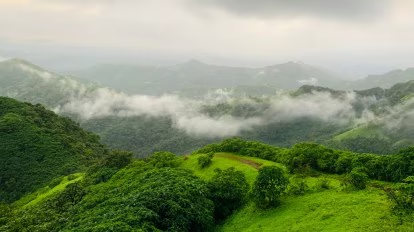The Karnataka government has officially decided against implementing the Kasturirangan Committee report, a document aimed at safeguarding Ecologically Sensitive Areas (ESAs) in the Western Ghats. Although there were earlier indications that the government might reconsider its stance, a recent Cabinet meeting cemented the decision to reject the recommendations entirely.
Background on the Kasturirangan Committee Report
Established in 2012, the Kasturirangan Committee was tasked with shaping a National Wildlife Action Plan focused on protecting biodiversity in the Western Ghats. The committee’s primary goal was to identify ecologically sensitive zones and propose strategies for their conservation, emphasizing the crucial role of local communities in environmental management. Striking a delicate balance between development and conservation, the report sparked widespread debates on sustainable land use, wildlife management, and ecosystem protection across India.
Political Pushback and Local Concerns
The report has faced significant political opposition, particularly from leaders and representatives of districts such as Shivamogga, Dakshina Kannada, and Udupi. Concerns are deeply rooted in the potential impact on the livelihoods of people residing in these ecologically rich areas. Many fear that implementing the report’s recommendations would impose restrictions on crucial activities like agriculture, construction, and other daily livelihood practices.
Government’s Stance and Response
Under the leadership of Law and Parliamentary Affairs Minister H.K. Patil, the Karnataka Cabinet opted to reject the report, citing substantial political pressure. This decision aligns with the previous stance of the BJP-led government under former Chief Minister Basavaraj Bommai, illustrating a consistent reluctance across different administrations to embrace the report’s recommendations.
Future Implications for Western Ghats
The rejection of the Kasturirangan report raises critical questions about the future of environmental protection in the Western Ghats. It underscores the persistent challenge of balancing ecological conservation with the socioeconomic needs of local communities. The decision reflects the complexities of implementing environmental policies in the face of strong local resistance, highlighting the ongoing struggle between protecting natural heritage and supporting human livelihoods.












